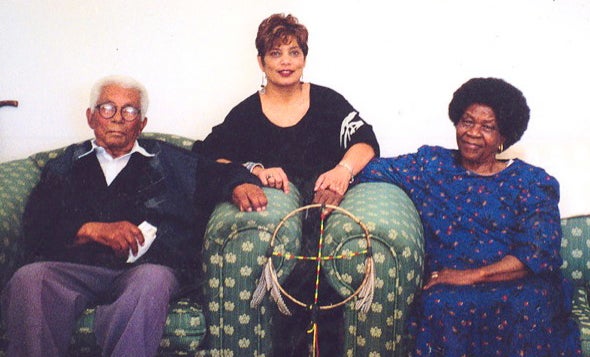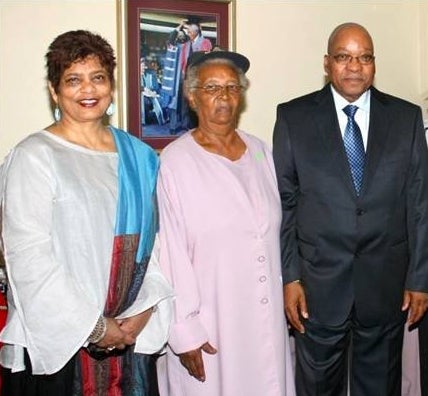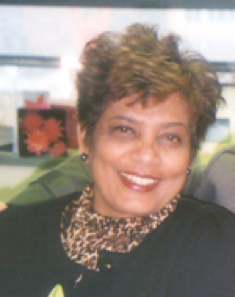Nesha has this amazing gift—she inspires people to find their true paths. Because she has always been true to herself, as everyone who knows her can attest to, Nesha is fiercely and faithfully always Nesha. She doesn’t pretend to be someone else. She simply eats, breathes, and lives her passions.
—Vera Sirota (2003/05)
Education:
Ph.D. Social foundations of Education, University of Michigan
MPH, Health Education University of Hawaii
BA University of Michigan, Sociology
Biography: Dr. Haniff’s work has focused on empowerment pedagogies and marginalized populations which have been centered on HIV, gender and innovative education for low literate populations. She has developed several educational modules on HIV/AIDS, violence, and women’s reproductive health. Her work has been located in the Caribbean, South Africa and the US. My over all project speaks to the imperative of integrating race, gender, and social consciousness ( both practice and theory) as knowledge development using the challenge of highly educated students attempting to teach in communities using a Freirean approach. Students must understand that empowerment methodologies do not eschew the rigors of ideas but those ideas must include a praxis that engages them in human rights advocacy at every level.
Human rights advocacy includes shaping the students’ consciousness in two other areas – the limits of science in developing appropriate technologies that will both protect women’s health and women’s agency and the pedagogical challenges of true empowerment that will critically examine who is empowered. Is the privileged the biggest beneficiary or the community? Thus, human rights become advocacy for new technologies that will put women’s sexual health in their own hands and as well as self-criticism and reflection on participating in the many so called empowerment projects The two path breaking courses that result are The Pedagogy of Action, Activism in race gender and Health, and Women’s Agency and Sexual Safety: Advocating for the new science (or Putting Women’s Bodies at the Center of Science). Students are engaged in transformative work and in turn transform themselves.
“As we attempt to analyze dialogue as a human phenomenon, we discover something, which is the essence of dialogue itself: The Word. However, the word is more than just an instrument which makes dialogue possible; accordingly, we must seek its constituent elements. Within the word, we find two dimensions reflection and action, in such radical interaction that if one is sacrificed – even in part- the other immediately suffers. There is no true word that is not at the same time a praxis. Thus to speak a true word is to transform the world” (Paulo Freire, Pedagogy of the Oppressed p. 87).
– P.O.A. 10th Anniversary
Durban Symposium: Who is the Recipient?
Contact: nzh@umich.edu
Website: http://sites.lsa.umich.edu/nzh/




